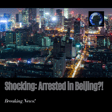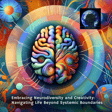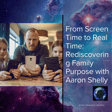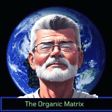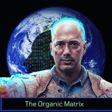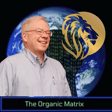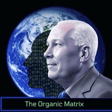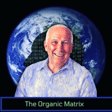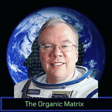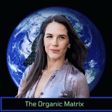Introduction to Leadership vs. Pop Guru Advice
00:00:00
Speaker
Welcome to the organic matrix. In a world full of pop gurus where everyone seems to be selling their version of the perfect leadership formula, it can be challenging to distinguish between what's genuine and what's a passing trend. Aspiring leaders often find themselves overwhelmed and confused by the noise, wondering how to become a true leader in a sea of flashy, self-proclaimed experts.
00:00:24
Speaker
If you're one of these people looking for guidance on your leadership journey, then you've come to the right place.
Beyond Hype: Insights from Jan Fried
00:00:31
Speaker
In this podcast, our guest Jan Fried and I, your host, Sam Aiko, will explore the art of leadership beyond the pop guru hype and provide you with practical insights and strategies to help you become the leader you were meant to be.
00:00:46
Speaker
Matrix members, if there's a topic weighing on your mind and you need an expert to address it, please send a request and I will connect you to a Matrix mentor you need. And if you're also hearing weird sounds in the background on today's podcast episode, my dog is about to give birth. So I just want to warn the listeners, if you guys hear some puppy cries, it's my daughter.
Exploring 'Breadcrumbs Legacy'
00:01:12
Speaker
What makes a great leader? That's the question. Jan Freed, PhD, tackles her in her new book, Breadcrumbs Legacy. How great leaders live a life worth remembering. Drawing in depth interviews with leaders from diverse fields, Jan shares practical insights and inspiring stories to help you leave a lasting legacy.
00:01:34
Speaker
As a leading development consultant, a seasoned author, Jan has dedicated her career to helping individuals and organizations unlock their full potential. Think of her as a human compass, guiding you to where you want to be.
00:01:49
Speaker
No matter what your age or stage of life is, Jan's expertise has earned her recognition as a certified saging leader on TEDx and a professor of the University of Iowa. But don't just take our word for it. Jan's impressive track record speaks for itself. Follow our show and bookmark our podcast so you don't miss out on our fantastic Matrix mentors. Welcome to the organic Matrix Jan.
00:02:17
Speaker
Well, thank you so much. I'm honored to be here and that was a very kind introduction.
Leaving a Legacy: Breadcrumbs Concept
00:02:23
Speaker
Husley, I am so excited to speak to you. I am such a fan of your Ted Talk episode. Can you tell us how your story began? Well, it's kind of interesting because my first career I taught at a small liberal arts college and I taught business management leadership. I only did that for 30 years.
00:02:41
Speaker
So after 30 years, I decided, you know, I want to try something else. I want to practice what I'm preaching. Now that's hard. But in the last five years I was teaching, I had an endowed chair in leadership and character development. It was called the Mark and Cade to Cook Endowed Chair in Leadership and Character Development. And that gave me some time to really do a deep dive into leadership.
00:03:06
Speaker
So i started this journey about two thousand five and i was on sabbatical and i started doing research and i kind of tell the story in the book and it's also on my website i kinda tell the story how this all began and i started interviewing people and
00:03:25
Speaker
When I left full time teaching, I could devote myself to that work. And that became a book called Leading with Wisdom, Sage Advice from 100 Experts. And I was doing workshops and speaking based on that book. And each chapter was a theme that emerged in the research. And the theme that seemed to resonate the most with leaders was the chapter on leaders live their legacy.
00:03:53
Speaker
So I would ask people in workshops and speaking, I'd say, well, when do we leave our legacy? And people would say, well, when we leave, when we leave a career, when we retire or when we leave the earth, when we die. And I said, sure, that's true. But what happens when I leave this workshop, when I leave this conversation, we are leaving our legacy all the time in bite sized pieces.
00:04:17
Speaker
And then I came up with this concept of, well, it's like a breadcrumb. We're leaving crumbs all the time. I'm leaving some crumbs with you here today. So that's kind of how this all came about. I interviewed more people and really kind of combined what I think are the main elements to living a life worth remembering.
Leadership Through Grief: Jan's Journey
00:04:40
Speaker
I love that the way you put it as like leaving breadcrumbs and it's so true and I never thought of it that way. I also noticed something very interesting that your students call you Dr. Death. Can you tell us a little bit about that?
00:04:56
Speaker
Well, okay. So I started this research in about 2005. And one of the themes that emerged in the, and this was for the leading with wisdom book. One of the themes that emerged was that I need, because my driving question was how can I best prepare leaders to be the kinds of leaders needed in these uncertain times? Well, then, you know, that was around 2008. I was still doing the research and the financial crisis and
00:05:26
Speaker
So my sages, I call them sages, wise people, because I did interview some of the top thought leaders in the field. The sages were saying, well, you need to teach people how to deal with death, dying and grief. And I'm like, what? And they said, industries are dying. Companies are disappearing. People are losing jobs. And most people do not know how to deal with grief.
00:05:49
Speaker
And if you can't deal with grief, you can't help those who work with you or for you to deal with grief. So then I did this deep dive into grief, death dying. And I would ask the Sages, well, how can I learn this? How can I teach compassion, empathy, grief, coping mechanisms? And another theme that emerged was
00:06:10
Speaker
Well, why don't you become a hospice volunteer? So I'm like, okay. So I kind of call my leading with wisdom book, my eat, pray, love book of leadership, because when I would learn something, I'd say, okay, I'm going to go do that.
00:06:28
Speaker
So I went through hospice training to be a volunteer in 2008, but I was still working full-time. I didn't have time to volunteer, but I decided in 2008 that hospice training to be a volunteer is really leadership development. Now, you don't have to be a volunteer. You can go through training and never volunteer. So when I left full-time teaching in 2011, I went through training again because it had been three years. So I went through training again.
00:06:57
Speaker
And now I'm a hospice volunteer. And if you want to learn about gratitude, if you want to learn about these concepts that are so important to be an effective leader and to live a life worth remembering, hospice is just wonderful. So I started, I was still teaching full time in 2008, nine, 10, 11. So I would integrate, I developed a leadership course for undergraduate students. So these students were typically 20 to 22 year old,
00:07:25
Speaker
to 20 to 22 years old. And I developed a leadership course around everything I was learning. So I started this in about 2008, I think. And so one of the major assignments that I had students do is write their own eulogy. Now in 2008, eulogies and obituaries sounded different.
00:07:52
Speaker
Now, they're sounding more alike. But in 2008, I could say, all right, what does an obituary focus on? And it tends to focus on what we've done doing. So accomplishments, where did we work, kind of facts. Eulogies tend to focus on who we are, our character, our being. And
00:08:16
Speaker
You know, who are we? What are we? What were we like? What was our character? So I have students write their eulogy and I explain it early in the course, but they don't have to complete it until the end of the course. And of course, at the beginning, they're thinking this is very odd, but by the end of the course, it all makes sense. And I say to the students, there are only a few requirements. One, you're going, it's mandatory. You have to do it. Two, you have to share it with the class, usually by reading it out loud.
00:08:46
Speaker
And three, it's not graded. So there's no way to not do it right. OK. Everything that anyone would do is always right. And there's no feedback. We don't give feedback. We don't discuss it. We don't talk about it. And it's done in the last class period. And it's really become what I call
00:09:06
Speaker
really a sacred activity in a sacred space. And I take the whole semester to create the culture where people feel safe sharing something so intimate. But the bottom line is, if students, if that's how, yeah, I say to students, if this is how you want to be remembered, then you need to start living your life like that right now. And so the earlier someone understands all that,
00:09:35
Speaker
the better off they are.
Enhancing Leadership Through Grief and Understanding Death
00:09:36
Speaker
And students have told me year after year, and now I do it in a graduate course, graduate leadership course. But students told me year after year that that was the most meaningful exercise ever and that it really changed their life. So students started calling me Dr. Deaf because I talk about death a lot.
00:09:54
Speaker
And I would say, you know, there's no film. It's a cult film called Harold and Maude. And I'm really a lot like Maude. I mean, I like to go to funerals. I collect eulogies. I collect, you know, sermons.
00:10:07
Speaker
Death and dying in grief has become really one of my passion areas. And I would encourage your listeners, I talk more about it in the TED talk, which is called, it can be found on YouTube, and it's called embracing death, seeing life through a different lens. And so thanks for watching that, Sam, that means a lot. So
00:10:28
Speaker
Absolutely. And personally, I've had a lot of experience within the last three years since the pandemic with grief and loss. And I recently published an episode with Clint Hatton. He found power after his son of 16 passed away. He was one of the youngest pilots to get their license and then spatial disorientation and he crashed into a mountain and
00:10:57
Speaker
Clint ended up becoming a life coach and like lived his legacy his son's legacy and created his own and Started the big bold brave and it's a program that guide people and he's like my son always Yes, I'll listen to that episode no wonderful and what I was gonna say is then with this book red crumb legacy Death dying and grief became even more front and center because of COVID
00:11:27
Speaker
as you said. So it really is an important topic that I think all of us need to deal with. Yeah, and I love that. I love the way that you teach that exercise. What inspired you to create that exercise for your classes? You know, it's interesting. I'm not exactly sure. But what I find kind of, I was ahead of my time in a sense, because
00:11:55
Speaker
Well, gosh, I forget 20, a few years ago, just like two or three years ago.
00:12:01
Speaker
David Brooks, who writes for the New York Times, came out with another book. And his book is called The Second Mountain. And it's about the second half of life, people kind of 50 plus, and what's life all about. And so again, his book is called The Second Mountain. But in that book, he talks about eulogy virtues versus resume virtues. And I was doing this years before his book came out. So it's kind of interesting. I'm not sure where.
00:12:28
Speaker
People have always talked about writing your own obituary. And I understand the value of that, but as I said, there used to be a difference. Now they're very similar, and people are writing their own obituaries now. But writing your own obituary, I did as a Sunday school teacher with junior high kids, you know, to get them thinking about how they want to live their life. But there's something about a eulogy is how are people remembered, and it's more personal.
00:12:57
Speaker
But David Brooks, going back to Brooks, he says eulogy virtues are those things that, you know, again, about your character and how you want to be remembered and resume virtues are those things that would be more like what I was describing with an obituary, like what have you done and what groups and organizations were you in and what were your accomplishments? Where in the end, most people say all of that kind of just fades away. What we remember is not so much what they did, but who they were.
00:13:27
Speaker
Absolutely. And I wish I remembered the name of this study. But there was a study where they interviewed a lot of people who were on their deathbed. And a lot of the specific details didn't matter to them. But what mattered was how they were going to be remembered. They started thinking about, did I leave a legacy? Did I help enough people? And that's the thoughts that we get.
00:13:54
Speaker
in around our 50s, 60s, 70s, but within our 20s and in our teens, we don't think about that. And sometimes we could be in this modern era of technology and instant gratification always chasing dopamine. That's a very easy thing to do. And if we think about what we want to be remembered for, do I really want to be remembered for that person who's always on their phone every time we're spending family time? Things like that.
00:14:23
Speaker
well i know i know exactly that's why i'm honored to be on your show because i would like to reach younger audiences because people often you know here's another example people often think of legacy late in life and here's another example i was reading an article about a year ago and it was about tom jones maybe you haven't even heard of him tom jones oh gosh what were some of his he's a singer and some of his famous songs i think what goes up must come down or spinning wheels
00:14:52
Speaker
always go around or something like that. He was known for some really pop gets, probably I would say in the late 70s or 80s. He just turned 80 and the title of the article was
00:15:04
Speaker
and turning 80, it's time to think about my legacy. And then the article went on to say, I'm not so sure I'm happy with my legacy. I guess I already have one. Maybe I should try to change it. And it was all about how- You know, in our quest for transformation, we often overlook the simplest yet most vital aspect of our wellbeing, hydration. It's not just for athletes or health obsessors.
00:15:31
Speaker
It's about maintaining our best selves every day, whether it's during a hectic work schedule, a meditative walk, or even enjoying some quiet time at home. This is where Liquid IV comes in. It's more than just a hydration solution. It's a blend balance and wellness.
00:15:48
Speaker
Their hydration multiplier uses cellular transport technology to hydrate you, twice as fast as water alone. Plus, it's packed with essential vitamins and three times the electrolytes of the leading sports drinks, and it doesn't have all that sugar. And let me tell you about the flavors. They're absolutely delicious.
00:16:09
Speaker
My personal favorite, the strawberry lemonade. It's like a burst of joy and a refreshment in every sip. But it's not just about the amazing taste of the hydration benefits. Liquid IV is committed to global wellness. They donated over 39 million servings worldwide to help communities in need. It aligns so well with our ethics here at The Organic Matrix that we believe in nurturing ourselves and extending that care to the world around us.
00:16:39
Speaker
So here's a special offer for all of you wonderful listeners. Head over to liquidiv.com and use the quote, organic matrix to get 20% off your order. Embrace hydration as a part of your journey towards a balanced life. And remember, organic matrix for 20% off at liquidiv.com.
Post-Pandemic Leadership and Entrepreneurship
00:17:01
Speaker
Now let's dive into the rest of our episode. He just kind of did whatever the heck he wanted to do without thinking about
00:17:08
Speaker
how it all adds up and now he's eighty thinking oh maybe i should have been thinking about this so you know i think the younger people are when they think about what what kind of life am i creating anything again covered made that gave people time to pause and think about my doing work that i want to do my with the people i want to be with how am i spending my time cuz time truly is the most precious precious resource.
00:17:35
Speaker
Absolutely. I totally agree with you. And that's one thing that I'm grateful for the pandemic. It was a time that where a lot of towers fell and a lot of past attachments were released without any kind of choice in it. And honestly, it's been a very sobering experience, knowing how fragile life can be. That's true. And one thing that I see
00:18:05
Speaker
in the populace since the pandemic is a lot more entrepreneurship and a lot of entrepreneurs realizing that wealth and success is related to being a good servant and learning how you can serve the world. I personally think finding how you want to participate in the world contributes a lot to the future legacy that we produce. How can one start to ask, like figure out within themselves who they want to show up as in the world?
00:18:36
Speaker
Well, that's a great question because I have a whole chapter in the book early on with the second chapter called, Why Get Up in the Morning.
00:18:43
Speaker
And so it's all about finding your purpose and purpose doesn't have to be this big P, like I'm going to, you know, be Mother Teresa. No, it can be very, again, think breadcrumbs, think small P. What are the small things that really could add up to something important? It could be tutoring someone, could be helping underprivileged children. It could be working weekly at a food co-op or food bank.
00:19:08
Speaker
You know, I love the story about the, and I forget where he was from. I think I'm in Iowa and I think he was from Wisconsin, but I could be totally wrong. But the man who created the little library homes that are people put up now in their front yards in neighborhoods.
00:19:26
Speaker
You donate books, you can bring books. And I think it's a national thing. And he just started it by wanting to make books more available. And now you can drop off books, pick up books. You know, again, something very small. And I think now it's a national movement. And I think it's called Little Libraries.
00:19:43
Speaker
So, you know, again, trying to, you know, discover, explore, you know, what are you interested in? What are you passionate about? Where can you make a difference? And it doesn't have to be some big monumental thing and we don't have to be rich and famous. But I think it's important to how can we do something that's beyond ourselves? So it's not always about building a resume.
00:20:08
Speaker
Not that you can't put that on your resume because, you know, I teach leadership and one of our most famous gurus is Peter Drucker. And Peter Drucker said, if you want to learn to be an effective leader, volunteer in a not-for-profit organization. Because leading volunteers, you don't have sticks, you don't have carrots, you don't have a lot of incentives. So you really have to be somewhat inspirational and influential to get people to follow you.
00:20:36
Speaker
And so I like to share that too. I love that. And that sets us up perfect for my next question. What sets successful leaders apart from the rest? I think I would go back to that whole concept of self-awareness. You know, leadership is not a position and it's not a title. It's a relationship. And
00:21:03
Speaker
you know, learning how to develop relationships. And no one's perfect. We all make mistakes, but knowing what your strengths are, playing to your strengths. And then if you have opportunities for improvement, which we all do, learning what those are and working on those.
00:21:19
Speaker
It's more fun to play your strengths, so figuring out what those are and what your passions and your interests. But it really does start with self-awareness. And a quote that I've used a long time in my courses is, self-awareness is empowering, that you really gain power
00:21:37
Speaker
by learning who you are. And that's a quote from Mary Catherine Bateson, who was the daughter of Margaret Mead, a famous anthropologist. So self-awareness is empowering. And yeah, it's one of my favorite quotes. So I think it really starts with the self, you know, who am I? How do I want to get better? What do I need to learn?
00:22:03
Speaker
What am I doing right? I was just listening to Adam Grant. No, I was listening to Dan Pink, who's another kind of current leadership guru. And he says, if you want to improve, don't ask for feedback. Ask for advice. Because he said, you'll always get better comments if you ask for advice.
00:22:24
Speaker
And I really liked that. So you want to get better. You want to improve. Well, ask people, how might I do this? Give me your advice. Because people like to share advice. And a lot of times, people are hesitant to share feedback. Oh, that's such a great tip. Thank you so much. And as a podcaster, I'm personally going to try this immediately because it's always great to know what our audience, what the people that we want to serve
00:22:52
Speaker
what they think, how things can improve for them. Because it's all about the experience that we share. And I love that. It really does bring more confidence in a space where people feel choked up. Like it's very hard to... Yeah, I guess it's a part of the growth, building that confidence to investigate. What are some of the most... Yeah, how can I get better? How can I improve? What advice do you have? Yeah.
00:23:21
Speaker
What are the most significant challenges leaders face today? Well, I think one is as we're working in more of a hybrid environment, you know, weaving the culture back together. I think making people feel like they belong, like they're part of a team, allowing people freedom and flexibility because during COVID people really got used to autonomy and they had more agency and control over their situation. And I think people like that.
00:23:51
Speaker
helping people integrate work and life in a very healthy way. I don't like the term work-life balance, because balance makes it seem like it has to be equal, like a teeter totter. And life isn't like that. But how can we integrate so that work is part of life, life is part of work, and people feel fulfilled, not burnout? So I think the culture is a big thing. I think listening to workers,
00:24:21
Speaker
More than ever, I think now's the time for leaders just to listen. People don't always need advice. They don't always need feedback. They just need someone to be there. And I think that goes along with the compassion and empathy that comes out of grief work. So learning how to help people when they're hurting. Because there is still a lot of hurt and sadness in the world. And I think with the war in Ukraine and
00:24:50
Speaker
threat of nuclear weapons and climate crisis, there's a lot to be worried about. And I think helping people feel somewhat psychologically safe is important. You know, another mass shooting in Nashville in a school, you know, psychological safety. Again, there's just all of this, all of these people, anytime someone's hurt,
00:25:18
Speaker
there's a ripple effect because there are connections, there are families, there are friends and people affected. So to me, it's all, to me, it goes back to the soft skills, which are really the hard skills. I agree with you. It's, it's, it's way easier to be controlling and like bypass people's emotions and to be a tyrant. Um, but the soft skills, I agree. They're the most challenging. And why do you think,
00:25:46
Speaker
Well, actually, I'm going to switch this question up a little bit. During these times right now where there's a lot of getting used to socialization, getting used to the new world of hybrid working, how can we take steps to avoid compassion burnout?
Emotional Challenges and Compassion in Leadership
00:26:03
Speaker
Well, let me think about that. Especially for someone who is not
00:26:15
Speaker
One of the reasons why grief work is so important is because you can't help others if you don't know your coping mechanisms. So if someone hasn't done the emotional inner work, we call it inner work, the work inside of ourselves to be strong and resilient and cope in healthy ways, it's hard to help others. And so that's going to be a challenge. One of the problems is,
00:26:42
Speaker
You know, people, instead of dealing with their own emotions and they're not prepared to help others with their emotions, people often use numbing. Numbing could be, certainly it could be drug and alcohol overuse, substance abuse. It could be sleeping too much. It could be watching television too much. It could be anything where you kind of zone out can be a numbing coping mechanism and that's not necessarily healthy.
00:27:09
Speaker
Now there are times in our life when we just feel like, okay, it's okay to do that. And that's fine. But if it becomes a real practice where you're avoiding any kind of difficult, tough conversation or need, you're avoiding addressing some issue, you know, that's probably not the most appropriate response. And so compassion burnout, I hadn't really thought of that, but it certainly can happen for, and especially for someone who doesn't want to deal with emotions.
00:27:39
Speaker
Okay. And I'm sure your listeners have probably heard about emotional intelligence, you know, really. So if someone has a low emotional intelligence quotient, you know, this is something that's really going to stress them out. It's really going to be difficult and challenging. And I, again, I think, you know, I think therapy is healthy. I think going to any kind of support groups are healthy. If, if you need that kind of support, whether you're a single parent or,
00:28:08
Speaker
excuse me, Al-Anon or AA or any kind of support group, you know, parents without partners. Any kind of support group can be helpful and certainly I think therapy, getting a professional advice to coach you through this is always helpful.
00:28:28
Speaker
Absolutely. Thank you so much. I think that's a great answer that a lot of us can take home and start wondering about. Personally, I related a lot when you said people who don't want to deal with emotions and emotional intelligence. That is something that I had to constantly work on throughout my career as a public speaker.
00:28:49
Speaker
And you're right, sometimes it doesn't even feel easier to make this decision to face these kind of discomforts, like when you do feel like you have compassion burnout. But I say Matrix members, sometimes we have to push ourselves down the hill and let momentum carry us because getting over certain habits, like numbing and self-medicating,
00:29:13
Speaker
It could feel impossible to start, but it's not about our feelings, right? It's about our discipline and making a conscious decision. I don't want to live like this anymore. I want a long lasting legacy and I don't want my legacy to be on the couch. Yes, there you go. I love that you're tying it back to legacy work. Thank you. What strategies can ensure that leadership remains meaningful and inspiring?
00:29:41
Speaker
Well, I think it's important that leaders, okay, first of all, let me define my definition of leadership, okay, or explain my definition. My definition is a leader is someone who's in the position to influence the lives of others. So it's a very broad definition. So if you're in a position to influence the lives of others, then you're a leader. Because I've had people say, well, I'm not a leader, I'm not in a leadership position. And I'll say, well, are you a parent? Are you a coach?
00:30:08
Speaker
Are you a pastor? Are you a teacher? All of these positions you're in require you to have influence over the lives of others. Then you're a leader. So I think leaders need to realize that
00:30:23
Speaker
that the role of a leader is really to develop other leaders. So even as a parent, you know, your role is to help your kids to be self-sufficient, make good decisions, have good values. You know, it's all about developing them. And I think the same is true, you know, if you're a teacher, pastor, coach.
00:30:41
Speaker
that your role as a leader is to help develop others, help them grow. And that's kind of the way I looked at my role as a professor or as a teacher. I'm developing future leaders. So what do they need to know and how do they need to behave and what are the skills that they need? So I think that's the way I'd answer that, Sam.
00:31:02
Speaker
Thank you. I love that. And I love that you bring it right home. Like if we're a big sister, if we're a mom, if we're a teacher, like you're right. We're always in a position where we can inspire others. Yes. And a lot of people may feel like they're not leaders because they don't have that intention. But there's always somebody watching. It could be a cousin. It could be a niece. It could be your best friend. And you never know who's watching.
00:31:28
Speaker
So if you're in a position to influence the lives of others, you are always on videotape. Now maybe someone's not physically taping you, but in their head, they're watching what you're doing, what you're saying, and especially kids. Kids are sponges. Absolutely. How can we stay true to our values and beliefs while leading in the 21st century?
00:31:57
Speaker
Well, I think first you need to know what they are. And, you know, I used to teach Sunday school and my kids were in, you know, young, much younger. They're adults now. They're young adults, working professionals like yourself. But when they were young, I was teaching Sunday school and I used to say to students, you need to, you need to have your values written on your forehead. Pretend that they're tattooed on your forehead. Because when you get into a situation, that's a dilemma.
00:32:22
Speaker
and you don't know what to do your value should guide you i think the same thing is true if you think about breadcrumbs and you think about legacy if you know what's important to you i think it will prevent road rage i think it would prevent you from harming someone else from really maybe even getting angry you realize i need to walk away i need to calm down i need to think about it before i have that conversation with my,
00:32:47
Speaker
higher up or my direct report or my friend. So again, I think knowing what your values are can really be can guide what you say, how you say it, how you behave. Thank you. Honestly, that put me into a position of a lot of deep thought and I'm definitely going to ponder on that answer.
Redefining Innovation as Creativity
00:33:09
Speaker
What role does innovation play in becoming a successful leader?
00:33:16
Speaker
Well, I look at innovation maybe a little differently than some people. To me, rather than innovate, I like the word create. You know, creativity. What are you creating? And how curious are you? And are you asking questions? You care about others. Can you make the workplace fun? Can you use creativity to inspire others? How might you use creativity to inspire others?
00:33:46
Speaker
That's kind of the way, you know, I think leaders have to be creative or it helps to be creative. It helps to be creative because everybody's different. So if you're going to inspire people, it's not one size fits all. You really, again, goes back to leadership as a relationship and looking at some of those
00:34:09
Speaker
relationships, again, how might you not everybody's going to be inspired by the same thing. So you have to think, well, that didn't work. What might I try now? So again, I think creativity and curiosity, those are two of my favorite words. Yes, those are superpowers. And it does sound so much more fun than innovation. Invention or where I think creativity and curiosity down more
00:34:37
Speaker
every day, like, sure, I can do that. I need to think differently about that. And I love it that it also sounds collaborative. Yes. Because as a collective, we're going to go a lot farther than if one person has a vision because of the point that you made earlier, there's not one way to inspiring everyone. Yes. And I think that's why it's great that you're inspiring so many leaders with your breadcrumbs, because if there's a lot of interests, there's eight billion people,
00:35:05
Speaker
and not one person can inspire all, it's great that you're raising thousands of other leaders to appease to those other niches. Well, that's my hope. That's my hope. What are the most common... Well, I think I asked you that. How can we ensure that our leadership is ethical and responsible?
Ethical Leadership: Aligning Actions with Values
00:35:26
Speaker
Well, I think however you're behaving and whatever you're saying has to be aligned with your values. So again, I think it goes back to your values. Who are you? What's important to you? And when you have strong values, you do not want to violate those. One of my values is integrity. It's really important to me what people think.
00:35:50
Speaker
or that I act with, that I'm very truthful and that I will act with integrity. Do the right thing. To the point where it causes me a lot of stress because if I accept a responsibility, I want to follow through and until I get that done, I'm worried about it.
00:36:08
Speaker
And so, you know, to be honest with you, integrity is so important to me. Now, again, I'm not perfect. I make mistakes. So therefore, in my book, I talk about leaders need to admit mistakes. Leaders need to learn how to forgive or to ask for forgiveness because no one's perfect and leaders can't have all the answers. They won't have all the answers. We make mistakes. We're humans and we make mistakes.
00:36:36
Speaker
I think forgiveness is an important concept for leaders to understand. And that's both in leading with wisdom book and the breadcrumb legacy book. So I think your actions and behaviors have to be, they have to mirror your values. I love that. And I, I'm seeing that that's where the self work comes in, where we have to take care of ourselves and like really learn ourselves.
00:37:06
Speaker
Yes. Can you tell us more about your book Breadcrumb Legacy and how leaders live a long worth living life and where we can also find the book if we're interested in reading?
Book Discount and Themes Discussion
00:37:23
Speaker
Well, I do have a 20% discount from the publisher. There's a discount code on my website, which is JanFree.com, two N's and two E's. And I would invite your listeners that if I've said anything of interest, they can subscribe to my, I have a monthly newsletter. I also have a monthly podcast where I interview people. My podcast is called Becoming a Sage. And I interview people about wisdom, wisdom on work, wisdom on life.
00:37:54
Speaker
And so they might want to check that out. And that's on my website. And if they subscribe, they would get that monthly newsletter. They'd get the monthly podcast. And then there's 20 percent discount code. My book can also be found on Amazon, but it's less expensive with the discount code, but it's faster to receive via Amazon because it's a heavily researched book. And so the book is a little pricey, I think.
00:38:20
Speaker
But with the discount code, it helps. So just kind of an overview. You know, you mentioned Dr. Death, so I've got a chapter called Embracing Death. I'll just give a quick overview of the chapters. I mentioned Why Get Up in the Morning. That's about purpose and meaning. I have a chapter called Drop Your Tools, and that's about learning, relearning, and letting go of those
00:38:50
Speaker
things, behaviors, people, relationships. It's about letting go of what no longer serves you. The next chapter is Becoming a Nobody. And that is all about ego. And I actually have a virtual TEDx talk called Becoming a Nobody. And that can be found on YouTube. And I would encourage your listeners to go there. It's only 12 minutes, I think, 10 minutes. The next chapter is Death Through a Different Lens. I talked about that.
00:39:19
Speaker
The next chapter is really important to me and it's called who will help you move the couch. And this is all about relationships. And what's interesting is some of the lonely, you know, loneliness was an epidemic before the pandemic. It's only become worse. And some of the loneliest people are people in their mid to late twenties, because up until you're, you know, 2022, if you go through college,
00:39:48
Speaker
Your relationships are all kind of set out for you. You make middle school friends, you make high school friends, you make college friends. And then you get into your career and you realize that, well, yes, I've got coworkers, but they're really, some of them may or may not be friends. And, you know, where are all my good friends? And then we get busy in our careers and we don't have time to make the friends that we did in college.
00:40:15
Speaker
And then if we get married and have kids, our focus becomes our family as it should. But what happens to, you know, our friends that, you know, our support system. And if you don't, if you don't invest in those relationships, they could fall by the wayside. So I'm really hot on that topic right now of relationships. I would love to ask you a question in that area because it's like, yeah, we can pursue that. Yeah.
00:40:42
Speaker
I am going through that extremely. And I've been going through that since the pandemic, because the pandemic started, I was like 22, or just turned 23. And I was still like, you know, developing, finding how I wanted to build my career.
Balancing Personal Relationships with Career Ambitions
00:40:58
Speaker
But then as COVID hit, you know, we had like almost three years of contact with other people being a very awkward thing. Not knowing like, yeah.
00:41:09
Speaker
And so a lot of my socialization habits became digital. And now it's like I'm in this position where I want to build my career. And I'm sure that a lot of people around my age, guys, I just turned 26. So a lot of you guys are probably in the same boat as me. It's like you want to build a legacy and you want to build a career. And we watched our parents work, work, work.
00:41:33
Speaker
not really spend as much time as we wanted with them as kids. So we're over here like kind of taking that same kind of pattern of like, I want to work, but then how do you, it's hard to build this digital legacy.
00:41:50
Speaker
With all the technology we have today, chat GPT, being able to write books now, being able to create amazing art, and it's so time consuming. How do we even consider investing in friendship? Because in my position as somebody who desperately wants to succeed in sharing this kind of knowledge,
00:42:11
Speaker
It's hard for me to think that hanging out is a fruitful way to spend my time or maybe not even feeling sure that the friends that I'm spending time with or family members are going to help me develop in the way I want to be to show up as the leader I want to be. So how do we deal with the confusion around building a legacy and also introducing our relationships into that mix?
00:42:40
Speaker
Well, I'll share advice, but I don't have any answers, okay? Because I struggle with this too. I mean, I could read and write all day long and be very, feel very good. I mean, the clock just spins, okay? So to me, and I'm working on this myself. So again, this is advice, but not an answer. But it's about setting boundaries, making time for friends, making time for physical fitness.
00:43:09
Speaker
making time for just fun, whatever fun is, you know, where you're not on an agenda and you don't have an assignment. But just, I was reading an article today in the New York Times about the value of walking, just going for a walk with, now when I walk, I do like to listen to podcasts.
00:43:31
Speaker
So that's, but I'm learning and, but you know, the article is just saying walk with no agenda, you know, with no assignment with nothing, you know, just walk. And we often get very creative ideas, kind of like what we used to say, Oh, you know, get ideas in the shower, which is true. Okay. But I think setting boundaries, you know, setting a time limit so that you're only on Facebook so many minutes, you're only on LinkedIn, so many minutes, you're only taking breaks and those breaks might be,
00:43:59
Speaker
you know, meeting someone for coffee and saying, okay, I've got an hour and this is what I'm going to do. One of the reasons I left my full time career when I did is because I had to drive an hour each way. And we don't live in Iowa because we have traffic jams. I was driving a hundred miles a day and I wanted to meet friends. I wanted to have coffee with friends. I wanted to eat, meet people for lunch. I wanted to get more involved in the community and I couldn't do that when I worked out of town.
00:44:30
Speaker
So I really make my relationships a priority. If somebody wants to get together with me and I reach out to others too, I really make that a priority, you know, meeting one or two friends a week for coffee, or I don't actually do lunch much, but meeting one or two friends for coffee and, you know, blocking off that hour just to talk about whatever. So I think setting boundaries, deciding what's important and then setting boundaries. And then when I think you go back to your social media,
00:44:57
Speaker
you know, you'll have more inspiration. You won't feel burned out. You'll be, I definitely take, you know, breaks from writing because we all know writing is all about editing. And so coming back to it later with a new set of eyes is important. So I think setting boundaries, you know, where you say we're not going to, you know, we're not going to, you know, like when my husband's home, usually about seven o'clock I say, okay,
00:45:24
Speaker
No more work. No more work. So what do we want to do? You know, we can go for a bike ride and go for a walk. We could watch a movie. We go out to the movies. We're going back to the big screen and I like that. I love that. I thank you so much. That advice is so good and it honestly eases me a lot because that's some really good tips. Like I would much rather spend an hour than six spending time with a loved one.
00:45:50
Speaker
And seeing two friends a week is going to be a lot more than I did in a year. So that's going to be a great goal. Jan, I appreciate your wisdom and your time so much. I'm so grateful that I had the opportunity to interview you. Where can our Matrix members find you if they want to continue learning from you?
00:46:11
Speaker
Right, exactly. Well, thank you very much. I've been honored and thank you for reaching out to me. I'm not exactly, I can't quite remember how we connected, but I'm glad we did. Okay, thank you very much. So I would say my website again is JanFree.com, two N's and two E's. I'm also very active on LinkedIn so they could connect with me on LinkedIn.
00:46:32
Speaker
I'm also on Instagram. I'm slow to the game, but I'm catching up. So I'm on Instagram, a little bit on Twitter, but not much. So again, I write a newsletter that they could get if they subscribe on my website. I'm also
00:46:49
Speaker
contemplating a LinkedIn newsletter. So I'm thinking about that. And I said, I have a podcast. So again, I would say my website or LinkedIn are probably the best. And Instagram, check me out on Instagram, I'm trying. I'm trying to be interesting on Instagram. What's your username on Instagram? Just at, oh, it's at Dr. Jan Fried. Awesome, I will make sure to follow you.
00:47:17
Speaker
And yeah, try that let me know and then give me advice Absolutely, I would love to I actually I do have three more fun and random questions for you Okay, rapid fire What do you think the meaning of life is? moments If money were no object, what would you do? I would I would
00:47:48
Speaker
You know, I'd probably write full time. I'd love to be an author that wrote a book that became a very big business book and gave keynote speakers around the world. But I also want to share, if I could have any career, what would it be? If I could have any career or if I could be any person,
00:48:12
Speaker
I'd like to be Terry Gross on NPR, National Public Radio. I'd like to be Terry Gross who interviews all these people. I love to interview people, which is why I have a podcast myself. So anyway, go ahead, Sam. I love that and I can totally relate to you. If you found out you were going to die tomorrow, what would you do?
00:48:36
Speaker
I'd contact, I'd probably send out an email, a mass email to all of my holiday card lists because I make my holiday cards. So I send those to people who are important to me and I would, you know, I would give them the news and then I would start trying, I'd probably start calling people, calling or zooming just to have, you know, last conversations, you know, tell them what I liked about them, tell them,
00:49:03
Speaker
how much they meant to me, what I learned from them. So I want to somehow have very fast conversations with the most important people to me. That's so beautiful. That is so beautiful. Thank you so much, Jen. Well, thank you. And I look... Go ahead. Oh, sorry. What were you going to say? I was going to close. No, I was just going to say thank you very much.
00:49:31
Speaker
For those seeking to level up their leadership skills and leave a lasting impact on the world, Jan Freed invites you to schedule a complimentary coaching call with her. Together, she can help you unlock your full potential and create a legacy that you're proud of. To learn more about her coaching services, visit Jan Freed's website, JanFreed.com.
00:49:56
Speaker
All feedback is welcome and helps us serve our fellow Matrix members. To stay up to date with our Matrix mentors and what we have in store for you, bookmark our website and subscribe to our podcast and YouTube channel. It was great having you with us on the Organic Matrix show and we'll be seeing you on the next stone.






